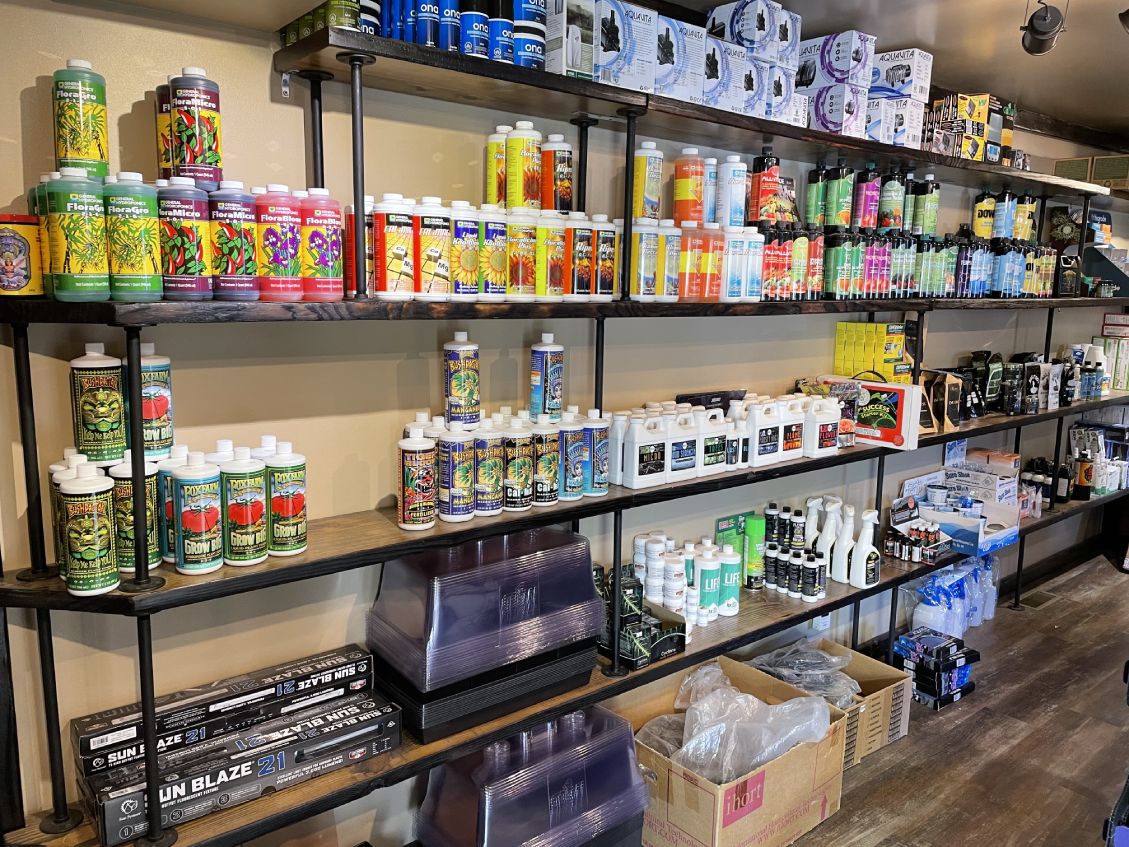The Indoor Earthworm Process: Your Secret to Flourishing Plants Through Growing
The Indoor Earthworm Process: Your Secret to Flourishing Plants Through Growing
Blog Article
Enhance Your Horticulture Skills With Hydroponics: Discovering Benefits
In the world of gardening, hydroponics has actually arised as a technique that uses a variety of advantages to both seasoned fanatics and newbies alike. The method of growing plants without soil might seem unconventional in the beginning, yet its advantages deserve taking into consideration - The Indoor Earthworm. As we delve into the world of hydroponic gardening, we uncover a huge selection of advantages that not only boost plant growth however likewise supply one-of-a-kind possibilities for people aiming to raise their horticulture abilities. By discovering the benefits that this cutting-edge technique offers, one can get understandings into exactly how hydroponics can transform the means we come close to horticulture.
Advantages of Hydroponic Horticulture
Hydroponic horticulture offers numerous advantages as a result of its reliable use sources and accurate control over plant development conditions. By supplying plants with direct accessibility to nutrients dissolved in water, hydroponic systems get rid of the need for soil, lowering water usage by up to 90% compared to conventional soil-based growing. This efficient nutrient distribution approach additionally permits faster plant development rates and greater returns, making hydroponic gardening an attractive alternative for making the most of minimal area and resources.
In addition, the regulated atmosphere of hydroponic systems makes it possible for growers to maximize elements such as temperature, ph, and humidity degrees, bring about much healthier plants with decreased risk of conditions and bugs. This accurate control over expanding conditions not only advertises much faster and much more regular plant growth but likewise allows for year-round farming regardless of outside weather.
Faster Plant Development With Hydroponics
Making use of advanced nutrient distribution systems, hydroponic horticulture assists in accelerated plant development rates contrasted to conventional soil-based farming techniques. In hydroponic systems, plants have straight access to essential nutrients liquified in water, enabling ideal absorption without the demand to expend power developing extensive root systems to look for nutrients in the soil. This effective nutrient distribution mechanism makes it possible for plants to redirect their energy in the direction of robust vegetative growth and respected fruiting or blooming.
Furthermore, the regulated environment in hydroponic setups makes sure that plants obtain the perfect problems for development consistently. Elements such as temperature level, light, humidity, and ph degrees can be meticulously kept track of and adapted to develop the optimal growing environment for each and every plant variety. By removing the irregularity present in soil-based gardening, hydroponic systems offer plants with a desirable and secure setting that maximizes their growth capacity.

Water Preservation Benefits
Hydroponic horticulture uses up to 90% less water compared to traditional soil-based gardening techniques. In hydroponics, the nutrient service is their explanation provided directly to the plant roots, guaranteeing ideal water uptake and minimizing water loss.
Additionally, hydroponic systems permit specific control over water use, with the capability to change and keep track of nutrient levels based on plant needs. This targeted strategy protects against overwatering, an usual problem in soil-based gardening, further adding to water conservation initiatives. By making best use of water efficiency and lessening waste, hydroponic gardening presents itself as a green and sustainable choice for individuals aiming to minimize their water consumption in gardening techniques.
Year-Round Plant Cultivation

By regulating factors such as nutrient, temperature level, and light levels, hydroponic systems enable plants to grow no matter exterior weather. This regular environment allows for continuous plant development and harvest, giving a reliable supply of fresh fruit and vegetables also in the dead of winter season.
Additionally, the capacity to cultivate plants year-round in hydroponic systems opens up opportunities for cultivators to trying out a larger variety of crops, expand their expanding periods, and boost overall productivity. This adaptability and reliability make year-round plant farming in hydroponics a valuable device for both hobbyists and business farmers wanting to maximize their horticulture initiatives.
Enhancing Gardening Skills Through Hydroponics
Creating proficiency in hydroponics can equip garden enthusiasts with a deeper understanding go to this web-site of plant growing strategies and enhance their general horticulture skills. Hydroponic systems offer a regulated environment where gardeners can carefully check and readjust aspects such as nutrient degrees, pH balance, and lights problems to optimize plant growth. By grasping these aspects, garden enthusiasts can fine-tune their skills and expertise, bring about more successful harvests and healthier plants.
Moreover, hydroponic horticulture obstacles traditional concepts of soil-based growing, motivating garden enthusiasts to assume outside the box and explore ingenious expanding methods. This trial and error can cultivate creativity and problem-solving abilities, as gardeners learn to adapt and troubleshoot issues distinct to hydroponic systems. Furthermore, the effectiveness of hydroponic configurations, such as vertical gardens or nutrient film techniques, can show gardeners just how to maximize space and resources successfully.
Conclusion
Finally, hydroponic horticulture provides many benefits such as faster plant development, water preservation, and year-round cultivation. By discovering the benefits of hydroponics, individuals can boost their horticulture abilities and attain effective plant development. Take into consideration integrating hydroponic strategies right into your horticulture practices to optimize effectiveness and productivity in your garden.
As we dive right into the world of hydroponic horticulture, we discover a this variety of benefits that not only boost plant growth but additionally supply one-of-a-kind possibilities for individuals looking to elevate their horticulture skills.Making use of sophisticated nutrient delivery systems, hydroponic horticulture promotes increased plant growth prices contrasted to conventional soil-based cultivation techniques. By removing the variability present in soil-based gardening, hydroponic systems offer plants with a secure and favorable setup that maximizes their development possibility.
Enhancing the sustainability and efficiency of gardening techniques, year-round plant farming in hydroponic systems provides a dependable and regular method for growing a selection of plants regardless of seasonal restrictions. The Indoor Earthworm.In verdict, hydroponic gardening uses numerous benefits such as faster plant development, water conservation, and year-round growing
Report this page